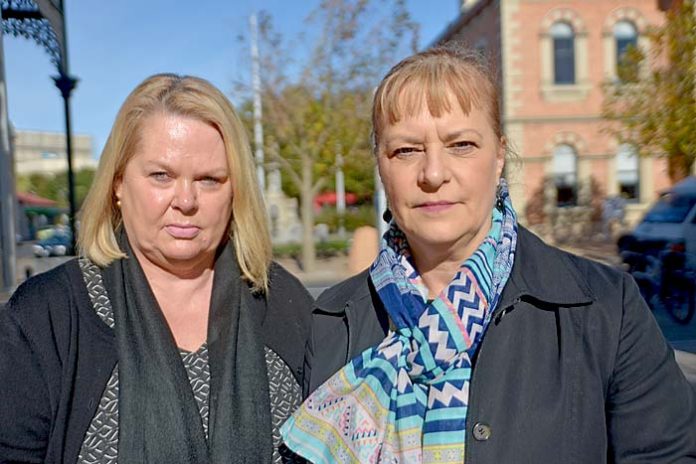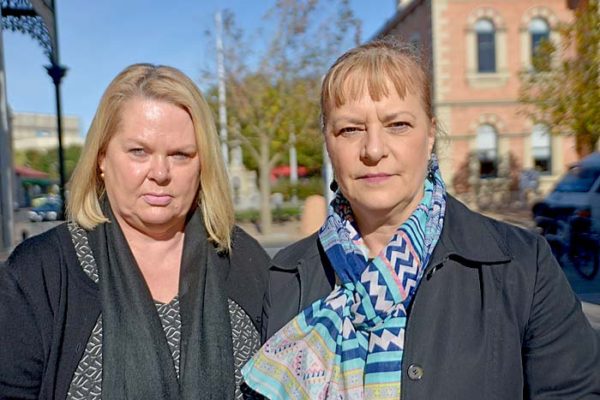

CLOSURE of the South East Community Legal Service (SECLS) later this month will lead to less women being helped to escape violent relationships, according to two women at the forefront of welfare services.
Limestone Coast Domestic Violence Service (LCDVS) manager Susie Smith and Family Violence Action Group (FVAG) chair Sonya Mezinec said they are extremely concerned for women throughout the region experiencing financial and other forms of abuse.
Dealing with a rising number of domestic violence cases, Ms Smith said many victims will not receive the help needed without referrals from the SECLS.
“In many cases, the domestic violence victim will go into the SECLS to deal with financial matters and financial abuse is often the first indication that there is a whole bigger picture of violence and abuse there,” she said.
“The SECLS will pick up on this and talk to the woman about what else may be going on, then ring us to ask if we can assist them further.
“How are those women going to be identified now without the SECLS?”
Ms Mezinec identified financial abuse as sexually transmitted debt – the debt that is created by their partner, but in the victims name.
“I remember a client of the LCDVS when I was there that stated she felt really well scaffolded by the connectivity of services around domestic violence that includes the SECLS,” she said.
“This is removing a piece of that jigsaw that comes together to support disadvantaged people and women and their children experiencing domestic violence.”
From July 1, legal matters that were managed by the SECLS will be dealt with by a centre in Adelaide, primarily through a phone service.
However, both Ms Smith and Ms Mezinec fear this could lead to further problems and cause more distress for domestic violence victims.
“Women in domestic violence often find it difficult to trust because of the entrenched dis-empowerment and really find it difficult to engage in phone services, particularly for something that is as complex as legal advice,” Ms Smith said.
“What else we know is that a tactic of perpetrators of domestic violence is to compromise the woman’s phone by looking at all of her calls, by not giving her credit to use the phone or by smashing her phone completely.”
Ms Mezinec said that face to face interaction is much more beneficial to those going through difficult situations.
“When women are in domestic violence situations there is a lot of trauma in their lives and they are really surviving day to day, they are managing some very difficult situations to protect themselves and their families,” Ms Mezinec said.
“The capacity to then be able to think well and talk through things on the phone is really hard – it is that face to face contact that really makes quite a significant difference.”
While the government has proposed a “fly in, fly out” service for legal assistance to come to Mount Gambier, Ms Mezinec is concerned staff will not have time to assist those in towns outside of the Blue Lake city.
“For people in disadvantaged situations it is likely they don’t have a car to travel into Mount Gambier so they are not going to be able to access a service that is there for only a short time,” she said.
“In domestic violence situations they are often denied access to transport by the perpetrator, which is very problematic because women who feel they are not getting support will go back to the violent situation and they won’t come out again.”
With a strong connection to the SECLS over the years, LCDVS case managers and FVAG members have also been provided with essential education on legal matters as they arise.
“This highlights the sort of issues out there that domestic violence victims are going to have without the SECLS like getting a quick response, getting proper and timely advice, follow through and support,” Ms Mezinec said.
If you require assistance contact the Domestic Violence Gateway on 1800 800 098 or 1800 RESPECT on 1800 737 732.
Dial 000 in an emergency.







